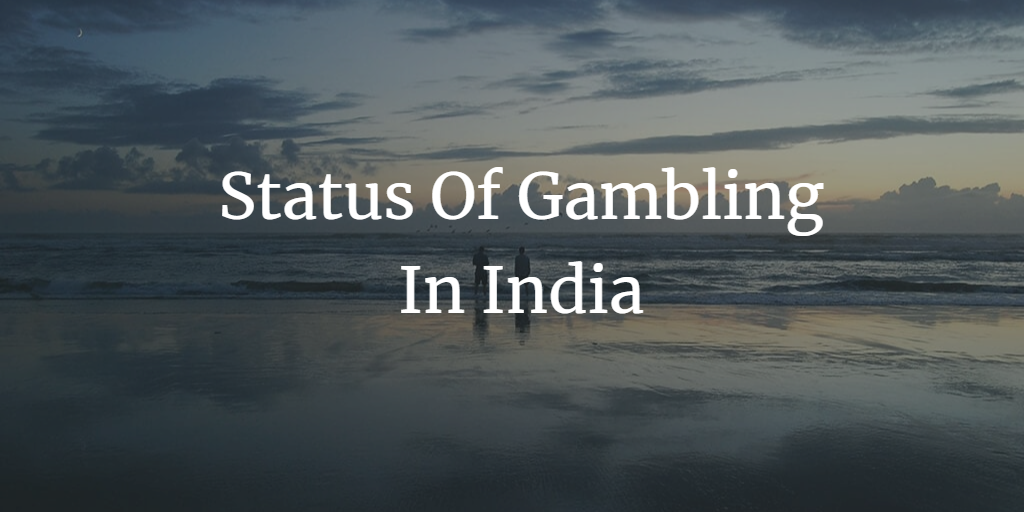Status Of Gambling In India: The Need For Uniformity

Table of Contents
Introduction
Gambling Laws in India
Challenges of Inconsistent Regulations
The Need for Uniformity
Potential Benefits of a Uniform Approach
Conclusion
Introduction
Gambling has been a popular pastime in India for centuries. However, the legal status of gambling in the country remains complex and inconsistent, with a patchwork of laws and regulations that vary from state to state. This article examines the current state of gambling laws in India, the challenges posed by inconsistent regulations, and the need for a uniform legal framework to govern this industry.
Gambling Laws in India
Gambling in India is primarily regulated by the Public Gambling Act, 1867, a colonial-era law that prohibits running or being in charge of a public gambling house. However, this Act does not specifically address online gambling, leading to ambiguity and inconsistency in its interpretation and enforcement.
In addition to the Public Gambling Act, gambling laws in India are subject to state-level legislation. As a result, the legal status of gambling varies widely across the country:
Goa, Daman, and Diu: These states permit casino gambling, both onshore and offshore, under the Goa, Daman, and Diu Public Gambling Act, 1976.
Sikkim: Sikkim has legalized various forms of gambling, including casinos and online gaming, under the Sikkim Online Gaming (Regulation) Act, 2008.
Nagaland: The Nagaland Prohibition of Gambling and Promotion and Regulation of Online Games of Skill Act, 2015, permits online skill-based games, such as poker and rummy, but prohibits other forms of gambling.
Challenges of Inconsistent Regulations
The inconsistent legal framework governing gambling in India poses several challenges:
Confusion and uncertainty: The varying legal status of gambling across states creates confusion and uncertainty for both operators and consumers, discouraging investment and growth in the industry.
Unregulated markets: In states where gambling is illegal or not explicitly regulated, unlicensed and unregulated gambling operations often thrive, exposing consumers to potential fraud and exploitation.
Ineffective enforcement: The absence of a uniform legal framework makes it difficult for authorities to enforce gambling laws effectively, leading to inconsistent outcomes and an uneven playing field for operators.
The Need for Uniformity
Given the challenges posed by inconsistent gambling regulations, there is a growing consensus among legal experts, industry stakeholders, and policymakers on the need for a uniform legal framework to govern gambling in India. A uniform approach would provide clarity and consistency, promote responsible gambling, and protect consumers from potential harm.
Potential Benefits of a Uniform Approach
Adopting a uniform legal framework for gambling in India could yield several potential benefits:
Greater clarity and consistency: A uniform approach would eliminate confusion and uncertainty, providing a clear and consistent legal environment for operators and consumers.
Consumer protection: A well-regulated and uniform gambling market would ensure that consumers are protected from fraud, exploitation, and other harms associated with unregulated gambling operations.
Economic growth: A uniform legal framework could encourage investment in the gambling industry, generate employment opportunities, and contribute to economic growth through tax revenue.
Effective enforcement: A consistent set of regulations would enable authorities to enforce gambling laws more effectively, ensuring compliance and maintaining a level playing field for operators.
Conclusion
The status of gambling in India is marked by a complex and inconsistent legal landscape that poses significant challenges for operators, consumers, and regulators alike. Adopting a uniform legal framework for gambling in the country could address these challenges by providing greater clarity and consistency, protecting consumers, promoting responsible gambling, and fostering economic growth. As the debate on gambling regulation in India continues, the need for a uniform approach becomes increasingly evident, and it remains to be seen how policymakers will respond to this call for change.


